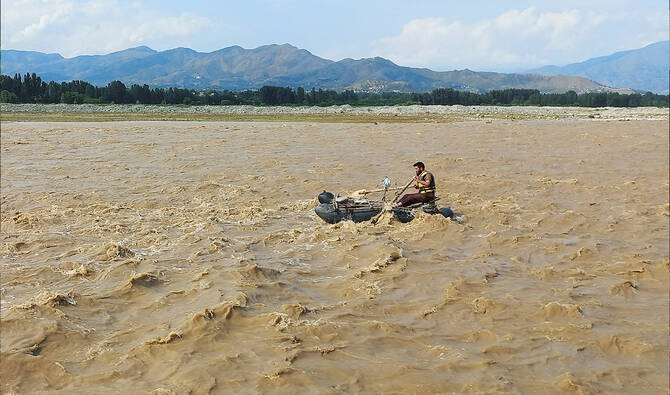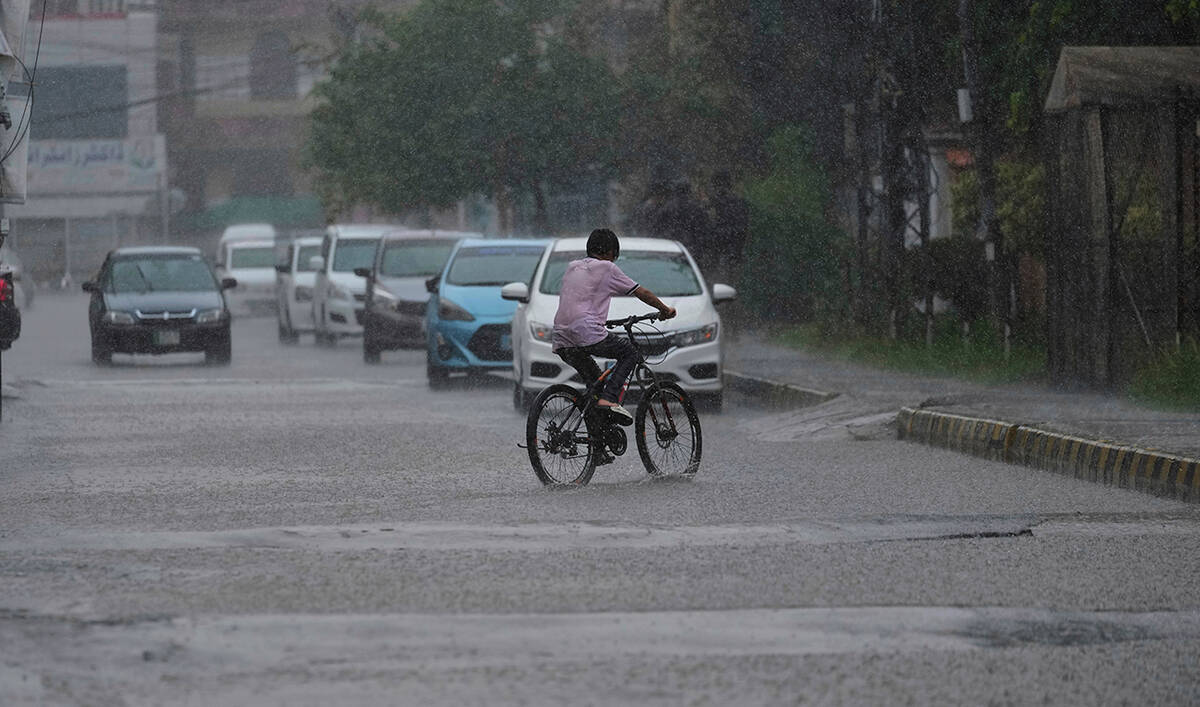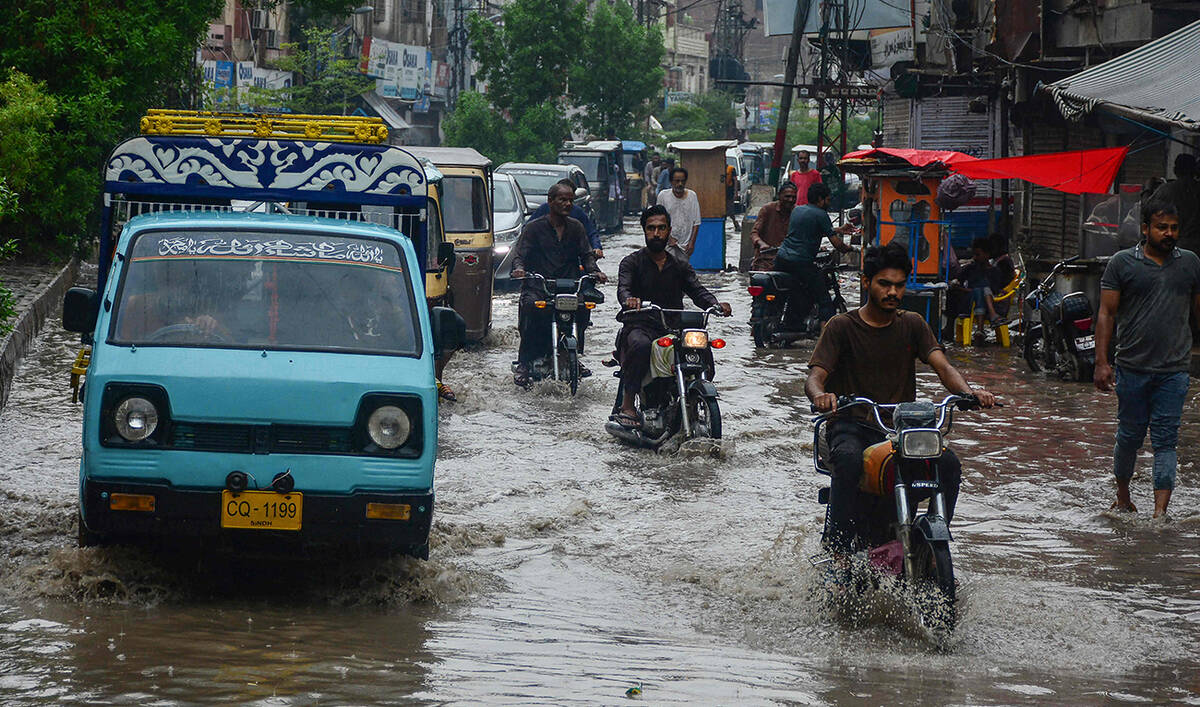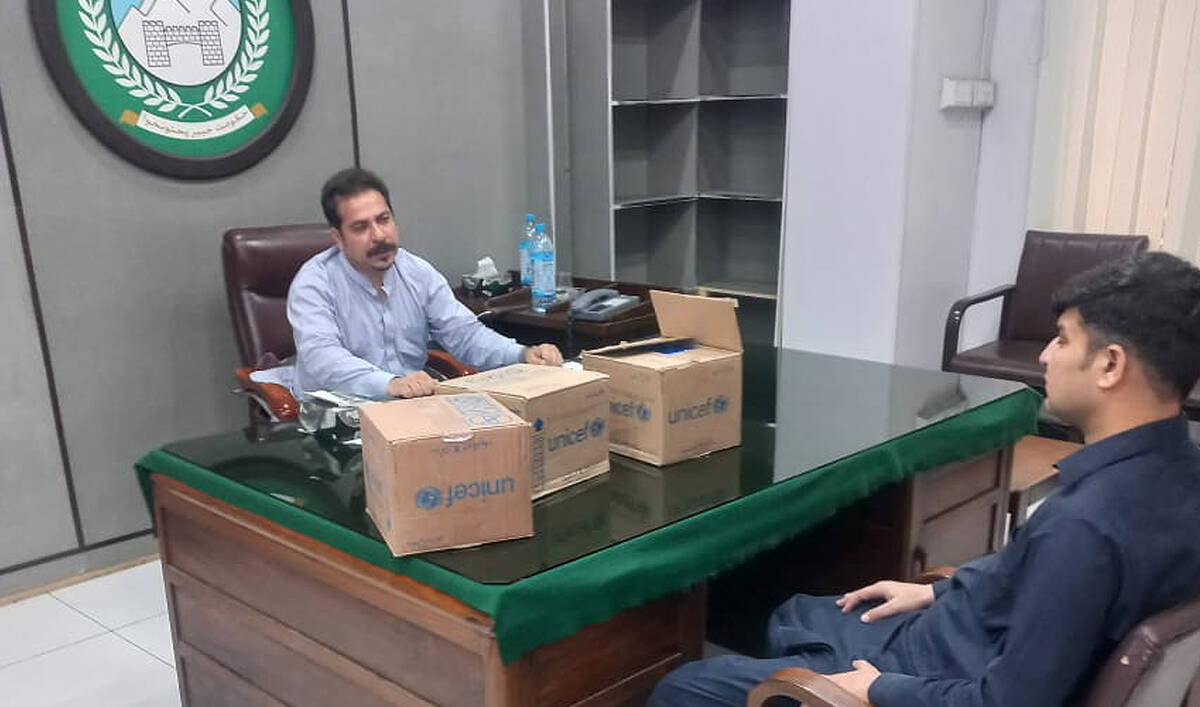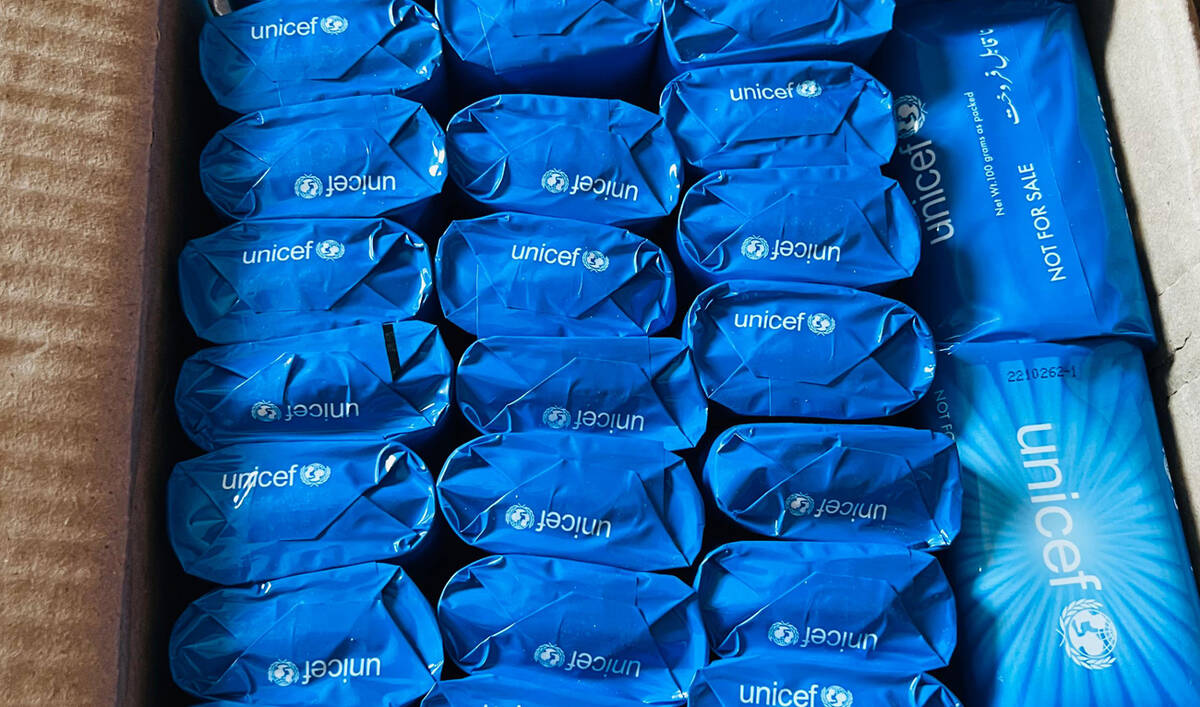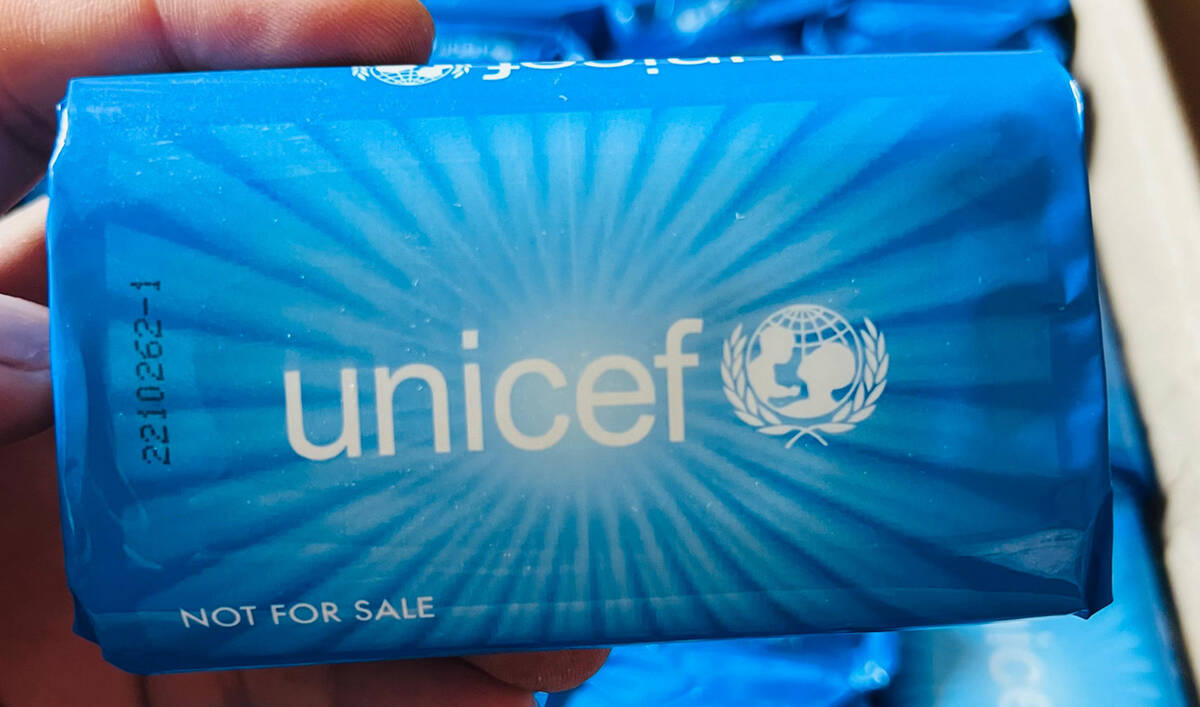KARACHI: Pakistani officials and disaster management experts on Wednesday lamented the lack of an “emergency evacuation plan” or other precautionary procedures on the country’s coastal region in case of a tsunami, raising particular alarm about the port city of Karachi, home to a nuclear power complex.
Karachi, the capital of Sindh province, is the country’s largest city and financial hub and has been hit by major cyclones and rainstorms in the recent past. In 1945, a deadly earthquake that occurred 100 miles south of Karachi in the Northern Arabian Sea triggered a tsunami that killed 4,000 people.
Yet, Pakistan conducted its last tsunami drill in 2013 after a string of such incidents occurred in the Pacific region, a senior meteorological department official said.
“We have forgotten the tsunami of 1945 which killed 4,000 people in our coastal areas,” Ameer Haider Laghari, a director at the meteorological department, told Arab News. “Karachi was a small fishing town back then. Pakistani citizens along the rest of the coastal belt are also at risk, but there is hardly any preparedness.”
Pakistan’s coastline is about 990 kilometers long and, apart from Karachi, has several other population centers, including Badin, Gadani, Pasni and Gwadar.
“While we may have some reaction time in Karachi,” Leghari said, “there will be hardly 10 minutes to act in places like Pasni and Gwadar in case of a tsunami.”
Without an emergency evacuation plan, the loss of life could be very high, he said.
“We have witnessed in the past how tsunamis affected Japan and Indonesia,” Leghari said. “The intensity of the two waves was similar but the results were quite different. In Indonesia, the tsunami killed around 300,000 people while the death toll in Japan was only 20,000. It all depends on a country’s preparedness and necessary awareness among the masses.”
Leghari acknowledged that the government had tried to make the seismic center in Karachi more efficient by installing five sirens after the 2005 earthquake in Kashmir. It had also installed 14 sirens in the coastal towns around the city. However, he said the government needed to do more to be better prepared.
Speaking to Arab News, Syed Shujjat Hussain, director operations at the Provincial Disaster Management Authority (PDMA) in Sindh, said the Authority, with financial assistance from the National Disaster Risk Management Fund (NDRMF) and the government of Sindh, was planning to install 14 Tsunami Early Warning System (TEWS) in the coastal belt of Sindh, including Karachi.
"The deputy commissioners, who are heads of district disaster management authorities, are responsible for the evacuation in case of emergencies and they have been doing their work in case of emergencies, but there is a need for legislation at the national and provincial level to prepare ourselves for a tsunami,” Hussain said.
Muhammad Idrees Mehsud, a risk reduction official at the National Disaster Management Authority (NDMA), said that country already had a comprehensive law - the National Disaster Management Act - and contingency, response and awareness plans in place that would be implemented during a disaster situation with the help of relevant agencies.
“We have urban search and rescue units," Mehsud said. "We have eight warehouses across Pakistan in which relief goods for 300,000 people are always available,” he added, saying the authority had carried out a massive mangrove plantation drive in Thatta in 2008-9 to provide natural resistance against tsunamis.
He said Pakistan had a "good" early warning system: “We have held drills in schools and have made tsunami guidelines with the help of UNDP."
But Osama Jadoon, a fire safety and disaster management expert, said more needed to be done, especially in Karachi given that it was home to a nuclear complex: “A tsunami can be even more devastating if proper arrangements are not in place.”
One possibility was to enhance the capacity of the city’s fire department, Jadoon said, since the institution had played a key role during disasters in other parts of the world.
“The world is prepared and has even named the sea storms which we are likely to witness in the next two decades,” Jadoon said. “However, we have no preparation at all.”
“We are not even making cosmetic arrangements,” the expert said. “But we will have to prepare ourselves and increase the capacity of our fire department besides ensuring better management by disaster management authorities.”






